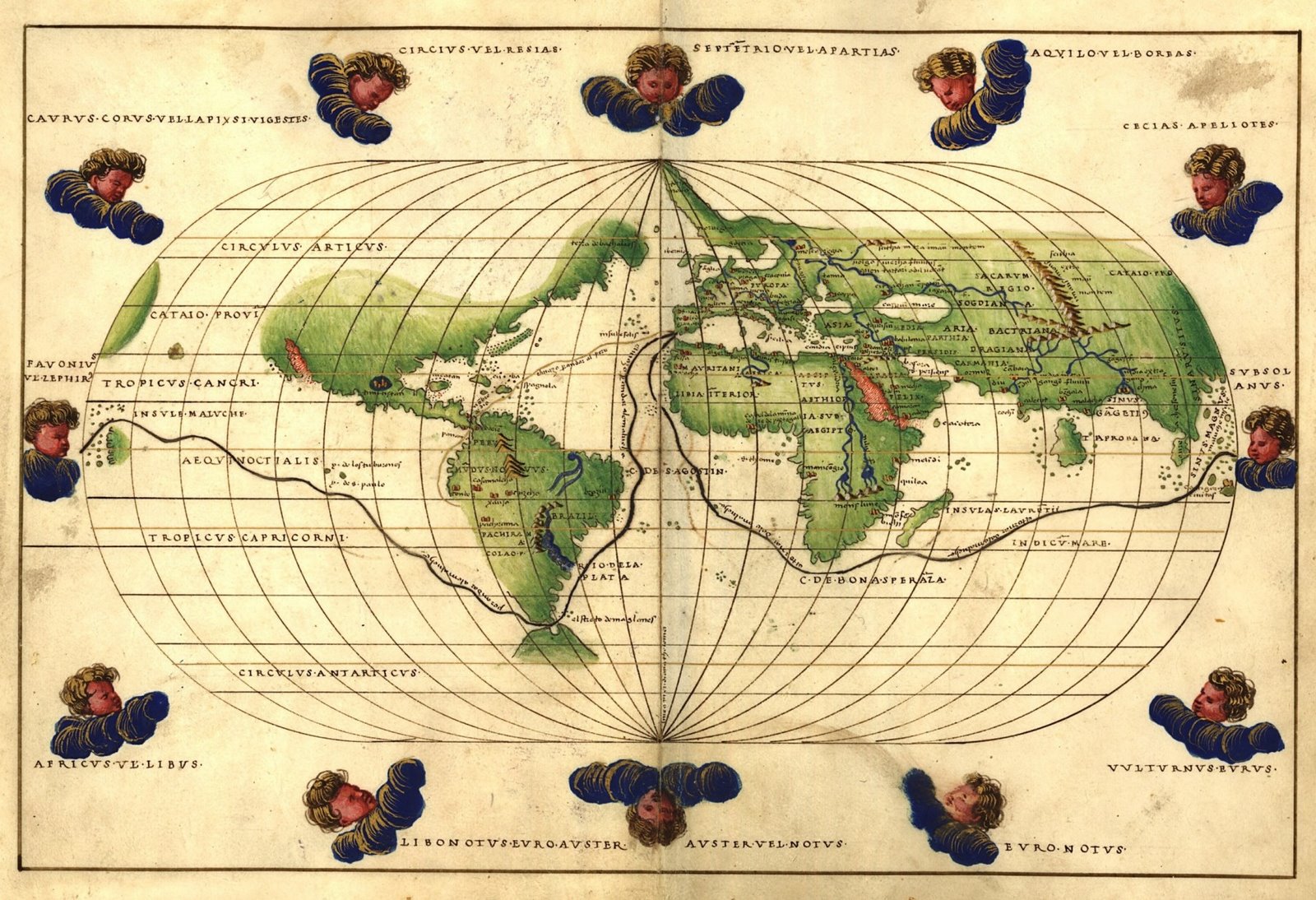Cultural Encounters: Travel, Religion, and Identity in the Early Modern World
Posted on 12 December 2012

The years between 1550 and 1700 saw the birth of our modern world. The rumbling legacy of the Reformations shaped the social and political landscape of Europe, and drove evangelical missions at home and abroad. Thanks to the trading influence and military prowess of the Ottoman Empire, Europeans were confronted by strange ideas, novel societies, and unfamiliar faiths, as well as sophisticated mathematical and scientific knowledge. Voyages of business and exploration brought travellers into contact with the peoples of the Far East, South Asia, and the Americas.
This lecture series will roam across early modern Europe and beyond, investigating the effects of these turbulent centuries, and their centrality to our own social and cultural inheritance.
Lectures will take place in the wonderful surroundings of the York Medical Society, on Stonegate, and will start at 20.00. Refreshments will be provided, and all are welcome to attend.
Monday January 14th
Cultural Encounters: the Circulation of the Sacred in the Early Modern World
Dr Simon Ditchfield, Department of History, University of York
The century after Columbus’ first voyage across the Atlantic in 1492 has long been characterized as the ‘Age of Discovery’. But perhaps it would be better termed the ‘Age of Self-Discovery’. The effect of the unprecedented circulation of goods and people around the globe was not only to devastate populations without resistance to western microbes and muskets, but to transform how Western Europeans understood their own Christian heritage as the latter was appropriated and adopted by indigenous peoples from Manila to Mexico; Calicut to Cuzco. This lecture will argue that the end result of this circulation of the sacred was the conversion of the Old World by the New (a process that is still unfolding).
Monday January 28th
Traveller’s Tales
Dr Abi Shinn, Department of English, University of York
Why was playing too much tennis in France or visiting the ruins of Rome hazardous to the English traveller? How did you go about visiting a Venetian courtesan or securing safe passage to the Holy Land? All these questions, and more, were addressed by sixteenth and seventeenth century travel guides and narratives. From descriptions of encounters with the New World, to journeys which prompted religious and cultural transformation, this lecture will explore how travel helped to shape both literary culture and English national identity in the early modern period.
Monday 11th February
Sinan: A Muslim Converts in Elizabethan England
Dr Matthew Dimmock, School of English, Sussex University
My lecture will focus on the baptising of a Muslim that took place in London in 1586, the first event of its kind. I will use the ceremony and surrounding circumstances to consider wider questions about the nature of conversion and about early modern English attitudes to ‘Mahometanism’. At the core of the lecture is a dilemma – when the English authorities were confronted with this individual and his desire to convert, what did they do? How might one go about organising the first baptism of a Muslim in Elizabethan England?
Monday 25th February
Improbable Lives: a One-Eyed Soldier, a Dervish, and Other Converts in Early Modern Rome
Dr Peter Mazur, Department of History, University of York
The disorienting experience of travel and the complexities of assimilation into a foreign society were common features of the history of Early Modern Europe, but they took on a special meaning in Italy, where an increasingly complex and organized clerical bureaucracy did its best to determine the religion of the men and women who arrived there and convert them to Catholicism, by persuasion or force. The stories that resulted are full of surprising twists and humorous detail that reveal much about the way religion was lived and experienced in one of the world’s oldest religious capitals.
Monday 11th March
Encountering Islam: the Qu’ran in the European Enlightenment
Dr Ziad Elmarsafy, Department of English, University of York
The Qur’an was something of a bestseller in Europe, despite (or perhaps because of) the endless warnings about its dangerous effects. The early modern period (roughly 1600-1800) saw the publication of the first translations of the complete received text of the Qur’an into modern vernacular European languages as well as Latin. This lecture will survey the history of this process and the intellectual conditions that made it possible.
Monday 25th March
Embroidered Encounters: Travel, Religion, and the Household at Hardwick Hall
Dr Helen Smith, Department of English, University of York
Bess of Hardwick was a redoubtable woman who built her magnificent house during one of the most turbulent periods of English history. Despite its isolated position, high on a Derbyshire hillside, Hardwick Hall was caught up in the swirling currents of the Reformation, Catholic plots and counter-plots, magic and murder attempts, the rumblings of atheism, and encounters with Islam. In this lecture, I will explore the history of the Hall, and Bess’s own colourful life, and use the sumptuous objects which still decorate Hardwick to show how one great household can be understood as a microcosm of English society in the Elizabethan age.
Notes to editors:
For more details about the Arts and Humanities Research Council-funded project 'Conversion Narratives in Early Modern Europe' please visit www.york.ac.uk/conversion.
